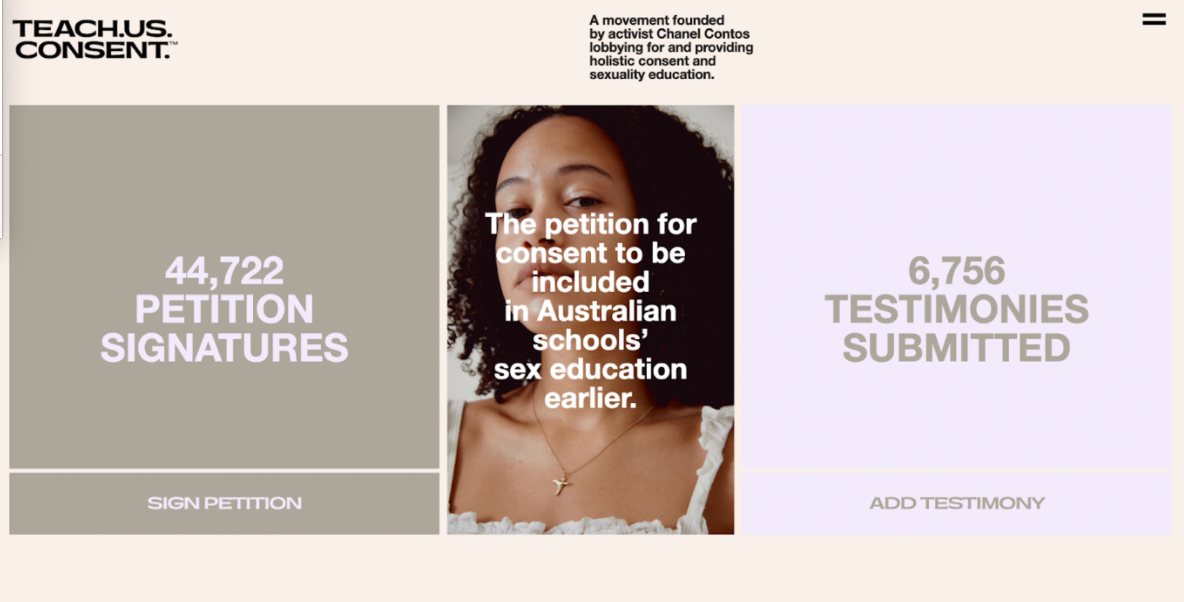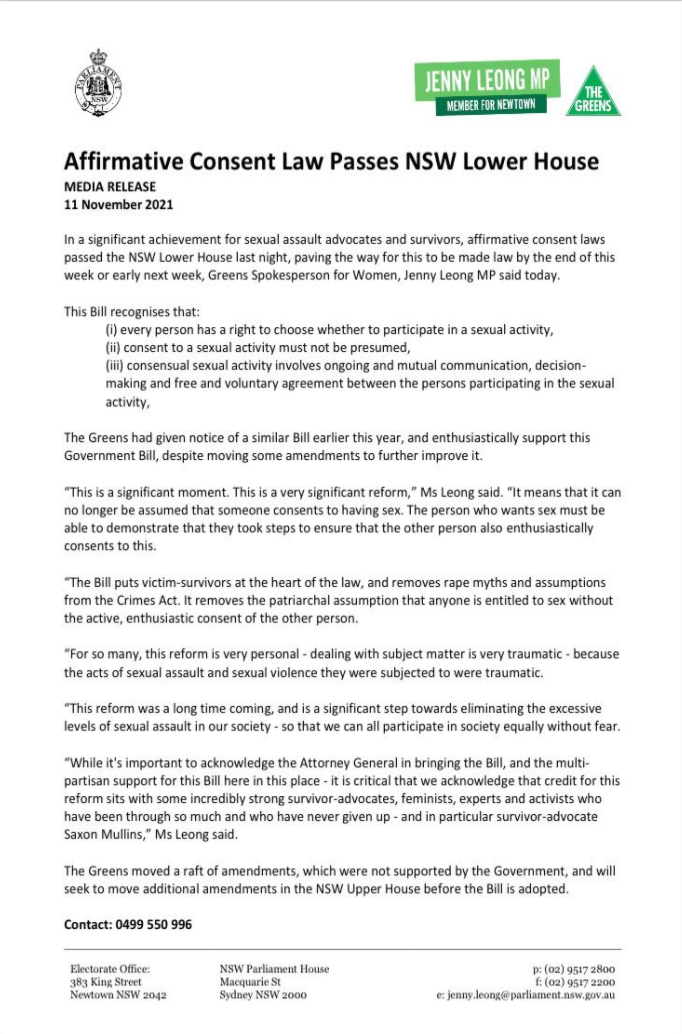‘Yes? Yes.’ Consent Education in Australian Universities.
TRIGGER WARNING: SEXUAL ASSAULT
She posted an Instagram poll in February 2021:
‘If you live in Sydney: have you or anyone close to you ever experienced sexual assault from someone who went to an all boys school?’
Over 24 hours, a heartbreaking 200+ people replied ‘yes’.
This ignited a petition and campaign spearheaded by Chanel Contos named ‘Teach Us Consent’: a holistic and age-appropriate curriculum to teach children in every school, from foundation until Year 10, about consent.
Source : teachusconsent.com
Last week, Education Ministers unanimously agreed to enact mandatory Consent Curriculums in all schools across the country from 2023.
How about university ‘Consent Matters’? Are one-hour online modules enough to educate university students about sexual consent?
History of Consent Laws
‘They cry rape’, they said.
Many sexual assault offences rest on the issue of consent, putting the credibility of the complainant under the court’s microscope.
However, this has been historically difficult to prove, following misconceptions in the 80s and 90s that sexual assault could not be conducted by spouses, that only physical injuries constituted a ‘true’ sexual assault, and that sexual assault should be reported without delay.
Consent is inextricably linked to the credibility of the victim, making it difficult for women and children who were perceived as less credible.
Consent laws today - how far have we come?
Now, sex-based offences are extremely serious.
On November 23rd 2021, ‘affirmative’ consent laws passed both Houses in the NSW Parliament, recognising that it must be ‘[demonstrated] that they took steps to ensure that the other person also enthusiastically consents… [removing] the patriarchal assumption that anyone is entitled to sex’, according to Jenny Leong MP.
Source: Affirmative Consent Law Passes NSW Lower House
What does this mean for universities?
Findings in the AHRC 2017 national report on sexual harrasment in universities saw the introduction of mandatory sexual consent modules in universities from 2018 for new students. Epigeum developed this program with advice from academic experts, and has been implemented in universities including University of Melbourne, University of Sydney, ANU, and Macquarie University.
However, this has been criticised as ‘tokenistic and unlikely to be effective’ and ‘it has not been evaluated’ since its introduction. These online modules are one-off, take around one hour to complete, and are not renewed enough to be in alignment with current consent laws.
Universities cannot be let off on one online module completed in your first year of university to properly educate students about sexual consent. ‘Consent Matters’ courses need to be renewed frequently by law and education experts in accordance with current laws and renewed by students every year as a mandatory requirement for university.
It is not okay for many sexual assault stories to remain silent or forgotten.
So, educate yourself and your friends, speak up, make noise. We are listening. Yes? Yes.
If you or anyone you know is struggling, please reach out to:
Respect National Helpline: 1800 737 732
Lifeline: 131 114
BeyondBlue: 1300 224 636
NSW Child Protection Helpline: 132 111



